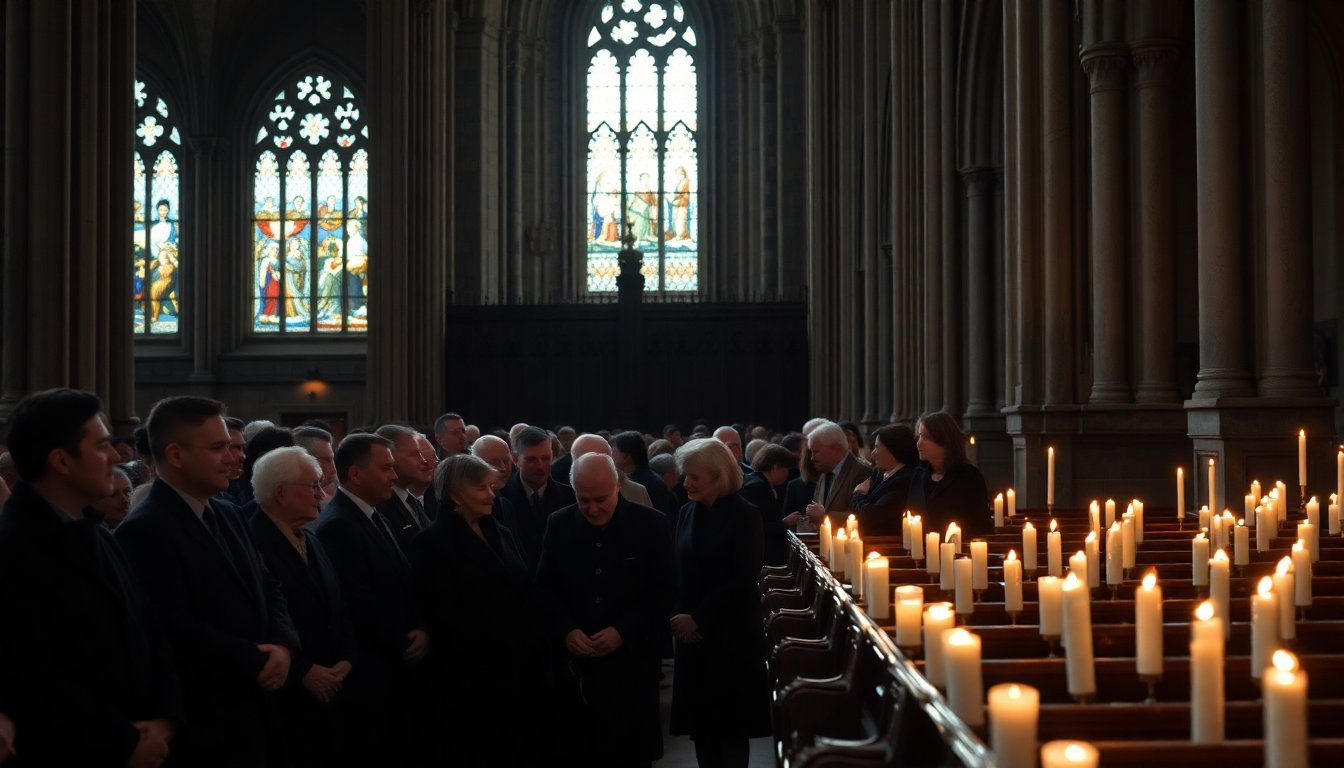Table of Contents
The funeral of former Vice President Dick Cheney at the Washington National Cathedral marked a significant moment in American political history. This event attracted a diverse gathering of both Democrats and Republicans, underscoring the complex legacy Cheney left behind. Attendees came together to honor Cheney, who passed away at the age of 84, while reflecting on an era marked by strong ideological conservatism and national security vigilance.
Absent from the gathering were notable figures such as President Trump and Vice President JD Vance, both of whom Cheney had criticized in his later years. Their absence highlighted the ongoing divisions within the Republican Party, divisions that Cheney often navigated throughout his career.
A ceremony steeped in history
During the eulogy, former President George W. Bush spoke of Cheney’s unwavering commitment to protecting the United States. “Though not a happy assignment, I do consider it an easy one. Because there was so much to like and admire about Dick Cheney,” Bush stated, evoking memories of Cheney’s pivotal role during a turbulent period in American politics.
Among the attendees were not only former Republican leaders but also prominent Democrats such as former Presidents Joe Biden and Al Gore, along with former Speaker Nancy Pelosi. This eclectic mix served as a reminder of how Cheney’s time in office transcended party lines, despite often contentious policies. As Liz Cheney, his daughter, noted, “He knew that bonds of party must yield to the single bond that we share as Americans.”
A reflection on Cheney’s controversial legacy
Throughout his career, Cheney was a polarizing figure. Democrats often viewed him as a master tactician who favored military interventions in Iraq and Afghanistan, influenced by his connections to the oil industry. Conversely, many Republicans regarded him as an ambitious strategist who leveraged President Bush’s vulnerabilities. His tenure was marked by a consolidation of power that some believed undermined Congressional authority.
Cheney’s funeral was not merely a remembrance of his achievements but also an acknowledgment of the shifting political landscape. The gathering offered a nostalgic glimpse into a time when political leaders could assemble across party lines despite their differences. The presence of figures such as former House Speaker John Boehner and Senate Leader Mitch McConnell reminded attendees of a less polarized era.
Cheney’s role in shaping national security
Cheney’s influence on national security policy is significant. Serving as the youngest Chief of Staff and later as Secretary of Defense, he was instrumental in directing military actions that defined U.S. foreign policy in the early 21st century. His approach emphasized a robust response to terrorism, particularly following the September 11 attacks.
During the eulogy, Bush described Cheney as a quiet advisor who provided calm guidance during crises. This contrasts sharply with the image of Cheney as a ruthless manipulator, often labeled “Darth Vader” by critics. However, as Bush pointed out, Cheney was primarily motivated by a genuine concern for the nation.
The evolving perception of Cheney
Time appears to have softened some of the animosities that once defined Cheney’s political life. Notably, Rachel Maddow, a vocal critic of Cheney’s policies, attended the funeral, illustrating how perspectives can shift over time. The presence of both allies and adversaries underscored the multifaceted nature of Cheney’s legacy.
Despite the absence of Trump, who frequently criticized Cheney and his family, the ceremony served as a testament to Cheney’s enduring impact on American politics. His reputation as an insider who thrived in the shadows has left a lasting mark on the political landscape. Cheney’s legacy will continue to prompt discussions about the balance of power in Washington and the role of national security in shaping U.S. policy.
Absent from the gathering were notable figures such as President Trump and Vice President JD Vance, both of whom Cheney had criticized in his later years. Their absence highlighted the ongoing divisions within the Republican Party, divisions that Cheney often navigated throughout his career.0


